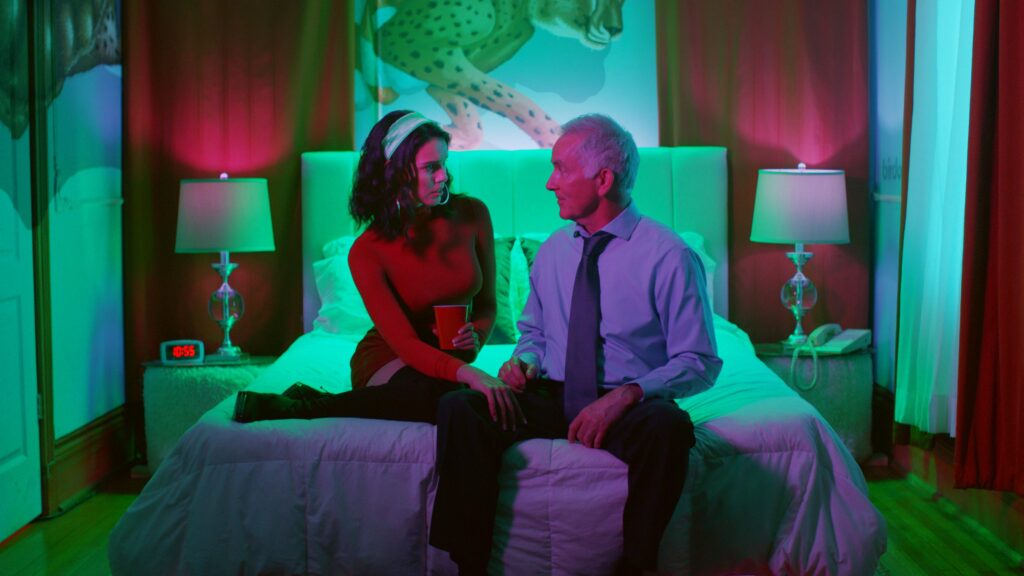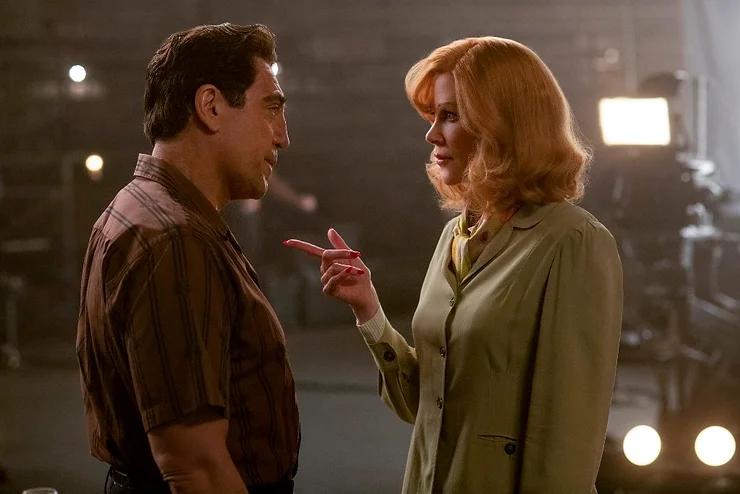Modern Whore (Canada, 2025)
Original title: Modern Whore
Director: Nicole Bazuin
Screenplay: Nicole Bazuin, Andrea Werhun
Main cast: Andrea Werhun, Mylene Carino, Claudio Musso, Francesco De Francesco, Casey Fleming, Paul Thomas Forrest, Tom Finn, Quinton Neufeldt
Running time: 80 minutes
When we think about the last awards season, perhaps one of the films that generated the most controversy was Anora (2025). This was precisely because it portrayed a world of sex workers, with people’s morality seemingly under attack by the title character played by Mikey Madison. It’s no surprise that Nicole Bazuin’s work bears a striking resemblance to the award-winning film, seeing as it’s based on the memoir of the same name written by actress and screenwriter Andrea Werhun — she was one of the professionals who consulted with Sean Baker on the script.

In this work, what most captures the audience’s attention is the language. From the moment the credits begin, with a color palette, music, and hair that convey a retro-futuristic feel, evoking The Stepford Wives (1975), it’s clear that it’s not just about what one would expect from a documentary about a woman’s life. Instead, it blends references that flash by, from Audrey Hepburn to a camera from the point of view of an anus. Perhaps because I identified with the way the work allows itself to digress and be distracted by its elements, it was easy to be drawn into its flexible and entertaining narrative.
The story told is that of co-writer Andrea Werhun, primarily regarding her sex-related work over the last decade. Although it displays this narrative flexibility, the subject is always treated with great seriousness. Although there’s plenty of humor, Andrea is very aware of elements ranging from gender and racial biases to the personal and social stigmas of her profession. She places herself at the center of this story (after all, it’s her own story) without obscuring the diverse existences within this very universe she wishes to portray.
However, it’s undeniable that this is a very specific slice of what it means to be a sex worker. While this effort to encompass more than just her own existence is noticeable, there are possibilities that clearly don’t even cross her mind, such as the people forced into such work. The same can be said about pornography and its increasing violence in recent years. Even if a single work isn’t capable of encompassing all the issues related to the subject, a slight nod to these themes could make the film a little deeper.
This blend of satire, autofiction, and interviews is what gives the work a depth that challenges the facts it presents. Initially, she comments on the stereotyping of sex workers as either victims or villains, and one perceives an effort to break this pattern and tell the story of a complex character, with both strengths and weaknesses, who refuses to fall into either category. She ultimately creates this new possibility of representation on screen, striking a tone very much in line with more recent discourses on plurality in female representation.





